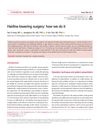 December 2022 in “The Journal of Cosmetic Medicine”
December 2022 in “The Journal of Cosmetic Medicine” Hairline-lowering surgery effectively reduces a high hairline with immediate, noticeable results.

EFBL offers hidden incisions, faster recovery, and fewer risks, but may raise hairline and cost more.
34 citations,
September 2020 in “Clinical, cosmetic and investigational dermatology” Hyaluronic acid increases collagen synthesis safely, while poly-L-lactic acid may cause complications by affecting fibroblasts.
7 citations,
November 2018 in “Plastic Surgery” The Mitek Microfix QuickAnchor is effective and safe for endoscopic brow lifts.
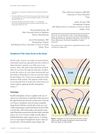 1 citations,
December 2015 in “Dermatologic Surgery”
1 citations,
December 2015 in “Dermatologic Surgery” Double trichophytic closure effectively treats thin scalp scars and reduces patient costs.
 70 citations,
August 2020 in “Nanomaterials”
70 citations,
August 2020 in “Nanomaterials” Electrospun nanofibers show promise for enhancing blood vessel growth in tissue engineering but need further research to improve their effectiveness.
 31 citations,
March 2009 in “Archives of Facial Plastic Surgery”
31 citations,
March 2009 in “Archives of Facial Plastic Surgery” The hairline-lowering surgery was effective, safe, and left patients satisfied with few complications.
 29 citations,
September 2020 in “International Journal of Molecular Sciences”
29 citations,
September 2020 in “International Journal of Molecular Sciences” The document concludes that freeze-dried platelet-rich plasma shows promise for medical use but requires standardization and further research.
 17 citations,
January 2013 in “Journal of Cosmetics, Dermatological Sciences and Applications”
17 citations,
January 2013 in “Journal of Cosmetics, Dermatological Sciences and Applications” 3D bioprinting could improve skin repair and treat conditions like vitiligo and alopecia by precisely placing cells.
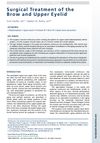 14 citations,
March 2015 in “Facial plastic surgery clinics of North America”
14 citations,
March 2015 in “Facial plastic surgery clinics of North America” Individualized assessment and meticulous planning are crucial for successful brow and upper eyelid surgery.
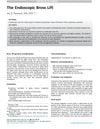 12 citations,
July 2016 in “Atlas of the Oral and Maxillofacial Surgery Clinics”
12 citations,
July 2016 in “Atlas of the Oral and Maxillofacial Surgery Clinics” The document concludes that the endoscopic brow lift is a less invasive cosmetic surgery that requires careful technique and patient selection to achieve lasting, aesthetically pleasing results.
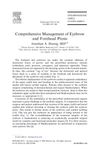 8 citations,
October 2005 in “Otolaryngologic Clinics of North America”
8 citations,
October 2005 in “Otolaryngologic Clinics of North America” The document concludes that successful management of eyebrow and forehead ptosis requires a thorough approach, considering anatomy, patient evaluation, and careful selection of surgical techniques.
 7 citations,
February 2012 in “Facial Plastic Surgery”
7 citations,
February 2012 in “Facial Plastic Surgery” The mini-lift is a less invasive face-lift for younger patients that is quicker, cheaper, and has a fast recovery, but is less effective for the midface and excessive neck skin.
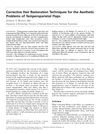 6 citations,
March 2003 in “Dermatologic Surgery”
6 citations,
March 2003 in “Dermatologic Surgery” Dr. Dominic A. Brandy developed successful techniques to fix unnatural looks caused by old hair restoration methods, and using oral finasteride and topical minoxidil can help control hair loss in most men.
 3 citations,
February 2014 in “Atlas of the Oral and Maxillofacial Surgery Clinics”
3 citations,
February 2014 in “Atlas of the Oral and Maxillofacial Surgery Clinics” New facelift techniques lead to less scarring and faster recovery, with high patient satisfaction after 4 years.
 2 citations,
October 2010 in “Springer eBooks”
2 citations,
October 2010 in “Springer eBooks” Using cheek skin and cartilage grafts for nose reconstruction after skin cancer surgery can maintain shape and function but may require multiple surgeries and hair removal in men.
 September 2023 in “Clinical, cosmetic and investigational dermatology”
September 2023 in “Clinical, cosmetic and investigational dermatology” A new surgical method using special sutures significantly reduced wound size and prevented disease return in patients with a scarring scalp condition.
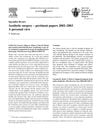 June 2005 in “British Journal of Oral & Maxillofacial Surgery”
June 2005 in “British Journal of Oral & Maxillofacial Surgery” Advancements in aesthetic surgery from 2002-2003 include improved skin resurfacing, effective migraine surgery, satisfying hair transplants, alternative treatments for skin nevi, successful endoscopic midface enhancement, and safe techniques for facial rejuvenation.
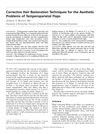 March 2003 in “Dermatologic Surgery”
March 2003 in “Dermatologic Surgery” Dr. Dominic A. Brandy shared methods to fix aesthetic problems from old hair restoration techniques, using methods like follicular unit grafting and scalp removal, which helped patients look more natural after surgery. He also suggested using oral finasteride and topical minoxidil to control hair loss in most men with baldness, especially those who had flap surgery.
 March 1997 in “The American Journal of Cosmetic Surgery”
March 1997 in “The American Journal of Cosmetic Surgery” A new hair transplant method showed promising results and a study found how deep a CO₂ laser can penetrate skin.
34 citations,
July 2003 in “Archives of Facial Plastic Surgery” Proper incision techniques can make face-lift scars less noticeable.
9 citations,
June 2019 in “Plastic & Reconstructive Surgery Global Open” The procedure safely and effectively lifted the lateral brow, improving appearance with minimal complications.
6 citations,
May 2019 in “JAMA Facial Plastic Surgery” Removing certain muscles during a browlift reduces glabellar wrinkles better long-term.
1 citations,
January 2021 in “Clinical case reports” The Hotz-Celsus surgery successfully fixed inward-turning eyelids in cattle.
 August 2024 in “Clinical Cosmetic and Investigational Dermatology”
August 2024 in “Clinical Cosmetic and Investigational Dermatology” Enzyme injections can effectively treat epidermoid cysts without surgery.
October 2021 in “Operative techniques in otolaryngology--head and neck surgery” The document concludes that various surgical techniques and postoperative care are used to protect eye health, improve vision, and restore facial balance in people with facial paralysis.
 May 2020 in “Plastic and Aesthetic Research”
May 2020 in “Plastic and Aesthetic Research” Endoscopic facial rejuvenation is key for natural, long-lasting results with less scarring and quick recovery.
 9 citations,
September 2015 in “Medical Clinics of North America”
9 citations,
September 2015 in “Medical Clinics of North America” The document explains how to do skin procedures, care after surgery, and when to use certain treatments.
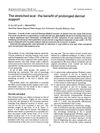 37 citations,
January 1989 in “British Journal of Plastic Surgery”
37 citations,
January 1989 in “British Journal of Plastic Surgery” Leaving non-absorbable sutures in for 6 months reduces scar stretching and width.






















